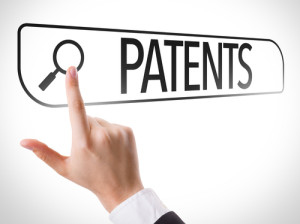Terminally Disclaimed Patent: What Now?
 What happens to the patent term extension in patents that are terminally disclaimed?
What happens to the patent term extension in patents that are terminally disclaimed?
The Hatch-Waxman Act establishes a patent term extension for patents that are related to certain products subject to regulatory delays that could not be marketed prior to regulatory approval.
What happens if, during the prosecution, the applicant files a terminal disclaimer that disavowed any term of the patent that would extend beyond the term of a prior issued patent?
This question has been argued in the landmark case Merck & Co. vs. Hi-Tech Pharmacal, Co., Inc. 482 F3d 1317, 82 USPQ2d 1203 (Fed. Cir. 2007). In this case the Court of Appeals for the Federal Circuit looked at the question of whether a patent term extension under the Hatch-Waxman Act, 35 U.S.C. § 156, may be applied to a patent during the prosecution of which a terminal disclaimer under 35 U.S.C. § 253 was filed to overcome an obviousness-type double-patenting rejection.
Section 156 provides for an extension of up to five (5) years if certain conditions are met as set forth in § 156(a):
(a) The term of a patent which claims a product, a method of using a product, or a method of manufacturing a product shall be extended in accordance with this section from the original expiration date of the patent, which shall include any patent term adjustment granted under section 154(b), if:
(1) the term of the patent has not expired before an application is submitted under subsection (d)(1) for its extension;
(2) the term of the patent has never been extended under subsection (e)(1) of this section;
(3) an application for extension is submitted by the owner of record of the patent or its agent and in accordance with the requirements of paragraphs (1) through (4) of subsection (d);
(4) the product has been subject to a regulatory review period before its commercial marketing or use;
(5)(A) except as provided in subparagraph (B) or (C) [not relevant in this case], the permission for the commercial marketing or use of the product after such regulatory review period is the first permitted commercial marketing or use of the product under the provision of law under which such regulatory review period occurred.
While § 156 states that, if the requirements are met, the patent term “shall be extended,” according to the Federal Circuit the use of the word “shall” in a statute generally denotes the imperative. Thus, use of the word “shall” indicates that if the enumerated list of requirements is met, the patent term is entitled to be extended.
Moreover, the court held that, unlike § 154(b)(2(B), which expressly excludes patents in which a terminal disclaimer was filed from the benefit of a term adjustment for PTO delays, no similar provision is in § 156.
Therefore, the court held that patents in which a terminal disclaimer was filed are not expressly prohibited from obtaining a patent term extension, according to Hatch-Waxman; and that the mandate of § 156, stating that the patent term shall be extended if the requirements enumerated are met, supports the conclusion that a patent term extension under § 156 is not foreclosed by a terminal disclaimer.
Thus, a patent term extension under § 156 may be applied to a patent subject to a terminal disclaimer.
Please contact me with questions or comments at silvia@salvadorilaw.com.
 Silvia Salvadori, PhD
Silvia Salvadori, PhD
www.salvadorilaw.com
www.salvadorilaw.com/blog
silvia@salvadorilaw.com
(212) 897-1938
